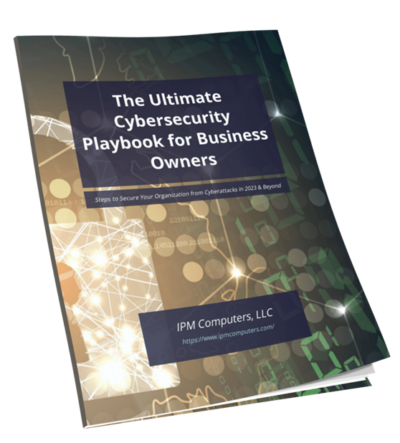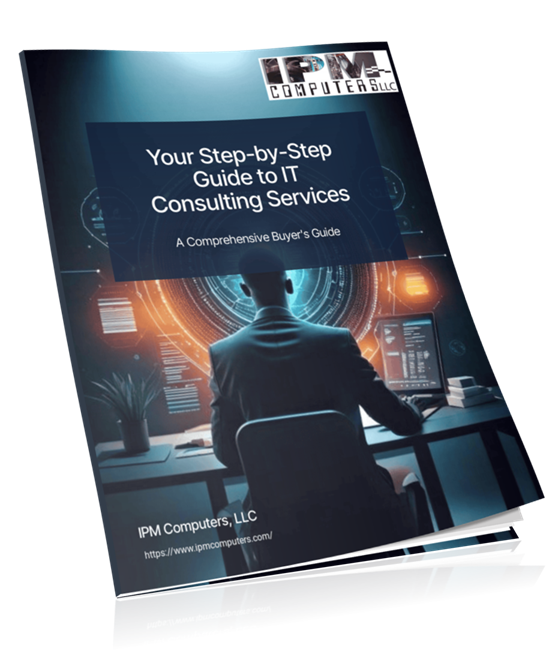Managed IT for Legal Practices gives law firms specialized technology solutions designed to optimize operations and ensure the security of sensitive data. These Wilmington IT management services include:
- Proactive monitoring
- Cybersecurity expertise
- Tailored support
In the legal sector, round-the-clock IT support is essential. Having dependable Wilmington managed services ensures a firm is able to quickly recover from technological issues, significantly impacting client service and operational efficiency.
Below, we’ll explore key aspects of managed IT services, including:
- Understanding what managed IT entails
- The critical role of these services in modern law firms
- Strategies for ensuring cybersecurity
- Leveraging cloud technology
Understanding Managed IT
Managed IT services refer to the practice of outsourcing IT management and support to a specialized provider. This approach enables law firms to focus on their core legal operations while ensuring that their infrastructure is efficient and secure.
Advantages of Proactive Monitoring and Support
Proactive IT support stands as a cornerstone of managed services, offering several benefits:
- 24/7 Monitoring: Continuous oversight of systems ensures immediate detection of potential issues.
- Timely Updates: Regular software updates enhance security and functionality, keeping practices compliant with industry standards.
- Reduced Downtime: Fast identification and resolution of problems minimize disruption, allowing legal teams to maintain productivity.
Traditional vs. Managed IT Support Models
Understanding the differences between traditional IT support and managed IT services is essential:
- Traditional IT: Often reactive, this model relies on fixing issues after they occur. It may involve ad-hoc responses that can lead to extended downtime and increased costs.
- Managed IT: Offers a proactive approach, focusing on ongoing maintenance and strategic planning. This model provides predictable pricing, which helps firms budget effectively for their IT needs.
The Role of Managed IT in Modern Law Firms
Law firms face unique technology management challenges that require specialized solutions. These challenges include:
- Handling Sensitive Data: Legal practices manage vast amounts of confidential client information, necessitating robust security measures.
- Collaboration Needs: Lawyers often work in teams, requiring seamless access to documents and communication tools, especially in remote settings.
Managed IT services effectively address these specific needs through tailored support.
Ensuring Cybersecurity in Legal Practices with Managed IT
Law firms are prime targets for cybercriminals due to the sensitive nature of the data they handle. Common cyber threats include:
- Phishing Attacks: Deceptive emails tricking employees into revealing confidential information.
- Ransomware: Malicious software that encrypts data, demanding payment for decryption.
- Data Breaches: Unauthorized access to sensitive client information, leading to reputational damage and legal consequences.
Managed IT for legal practices provides a robust defense against these threats through comprehensive cybersecurity strategies. Key strategies implemented by IT providers include:
- 24/7 Monitoring and Threat Detection: Continuous oversight to identify and respond to potential threats in real time.
- Advanced Security Protocols: Deployment of firewalls, intrusion detection systems, and encryption technologies to protect data integrity.
- Regular Software Updates and Patch Management: Ensuring all systems are up to date to defend against vulnerabilities.
- Employee Training Programs: Educating staff on recognizing phishing attempts and adhering to security best practices.
Incorporating these elements enhances data protection significantly. A specialized provider not only addresses current cybersecurity challenges but also prepares law firms for future threats.
Leveraging Cloud Technology in Legal Workflows through Managed IT
The adoption of cloud technology for law firms has transformed the way legal practices operate. Key benefits include:
- Increased Collaboration: Cloud-based solutions enable teams to access documents and case files from anywhere, fostering real-time collaboration regardless of location.
- Flexibility: Law firms can scale their IT resources up or down based on demand without incurring excessive costs associated with physical infrastructure.
Transitioning to the cloud requires careful planning and execution. A reliable provider plays a crucial role in this process by offering:
- Assessment and Strategy Development: Evaluating current systems and identifying the best cloud solutions tailored to specific legal workflows.
- Seamless Migration: Ensuring data integrity and minimizing disruptions during the transition phase through meticulous planning and execution.
- Ongoing Support: Providing training for staff on new systems, ensuring they can leverage the full capabilities of cloud technology effectively.
With scalable IT solutions, law firms can adapt to changing demands while enhancing productivity, security, and overall operational efficiency.
Choosing the Right Managed IT Provider for Your Legal Practice
Finding the right IT support provider for legal practices requires a thoughtful approach. Several critical factors play a pivotal role in this decision-making process:
1. Industry Experience
Select a managed IT provider with a proven track record in serving law firms. Familiarity with legal-specific technology and regulations is essential for effective service delivery.
2. Client References
Request testimonials or case studies from other law firms that the provider has worked with. This insight can provide confidence in their capabilities and reliability.
3. Customized Solutions
Assess whether the provider offers tailored IT solutions that align with your firm’s specific needs. Flexibility and adaptability are key traits of an effective partner.
4. Support Infrastructure
Evaluate the level of ongoing support they offer, including 24/7 monitoring and immediate response times to issues. Reliable support ensures minimal downtime and uninterrupted operations.
Achieving Cost Efficiency with Managed IT
Evaluating the cost benefits of outsourcing IT needs to a MSP versus maintaining an internal team reveals several advantages:
- Predictable Pricing Model: MSPs often operate on a subscription basis, which simplifies budgeting by providing predictable monthly costs.
- Reduced Overhead: Outsourcing eliminates the need for salaries, benefits, and training expenses associated with hiring full-time IT staff.
- Access to Expertise: MSPs offer specialized knowledge in legal technology, ensuring cybersecurity without the cost of continuous professional development.
- Scalability: As firms grow, an MSP can easily adjust services to meet evolving demands, avoiding costly upgrades or additional hires.
Embracing Managed IT Solutions for Success
The legal landscape is dynamic and requires law firms to prioritize cybersecurity and operational efficiency. Adopting managed IT solutions is essential for maintaining a competitive edge. Here are key benefits:
- 24/7 Support: Ensures immediate assistance for any IT issues, minimizing downtime.
- Proactive Monitoring: Identifies and addresses potential threats before they escalate.
- Scalability: Adapts to the growing needs of your firm without significant investments.
Investing in managed IT services allows your practice to focus on core legal activities while ensuring that technology aligns with business goals.
Explore options for reliable 24/7 support through a reputable managed service provider. Protect your sensitive data, enhance operational efficiency, and secure your firm’s future.
Frequently Asked Questions About IT Management
What are managed IT services tailored for legal practices?
Managed IT services for legal practices involve outsourcing IT management and support to ensure that law firms can focus on their core operations while receiving specialized technology solutions. These services include proactive monitoring and cybersecurity measures, specifically designed to address the unique needs of legal firms.
Why is 24/7 IT support important in the legal sector?
Round-the-clock IT support is crucial in the legal sector due to the time-sensitive nature of legal work. Law firms often handle urgent matters that require immediate access to information and systems. Having continuous IT support ensures that any technical issues can be resolved quickly, minimizing downtime and maintaining productivity.
How do managed IT services differ from traditional IT support models?
Managed IT services differ from traditional IT support models in that they provide a proactive approach rather than a reactive one. While traditional IT support often involves addressing issues as they arise, managed IT services include ongoing monitoring and maintenance to prevent problems before they occur, leading to enhanced efficiency and reduced risks.
What cybersecurity strategies should a managed IT provider implement for law firms?
A good managed IT provider should implement several key cybersecurity strategies for law firms, including regular security assessments, data encryption, employee training on security best practices, and incident response planning. These measures help protect sensitive client information from cyber threats.
What are the benefits of using cloud technology in legal practices?
Cloud technology offers numerous benefits for legal practices, including increased collaboration among team members, improved accessibility to documents from anywhere, scalability to accommodate growth, and enhanced data security features. A reliable managed IT provider can facilitate a smooth transition to cloud-based solutions, ensuring minimal disruption during the process.
What factors should be considered when choosing a managed IT provider for a law firm?
When selecting a managed IT provider for a law firm, important factors to consider include the provider’s experience working with legal practices, client references or testimonials, responsiveness of their support team, and the range of services offered. These considerations, combined with reliable IT support in Wilmington, will help ensure that the chosen provider can effectively meet the firm’s unique technological needs.






